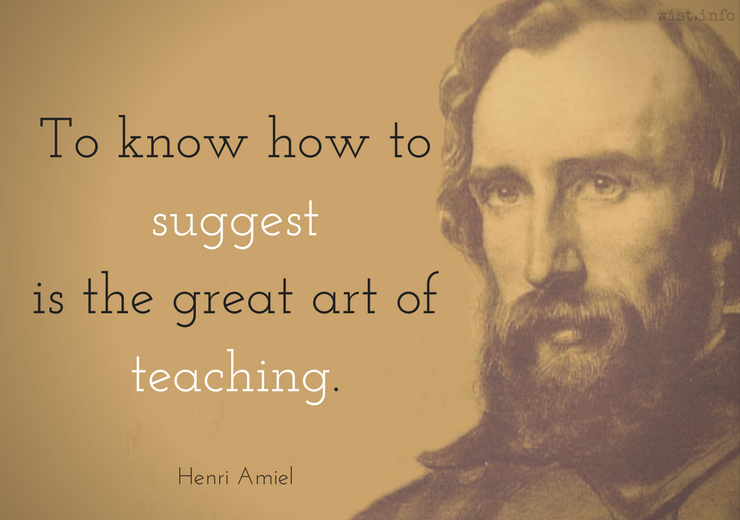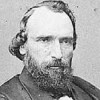A Sunday-school is a prison in which children do penance for the evil consciences of their parents.
H. L. Mencken (1880-1956) American writer and journalist [Henry Lewis Mencken]
A Little Book in C Major, ch. 3, § 3 (1916)
(Source)
Variant:
SUNDAY SCHOOL. A prison in which children do penance for the evil conscience of their parents.
A Book of Burlesques, "The Jazz Webster" (1924)
Quotations about:
instruction
Note not all quotations have been tagged, so Search may find additional quotes on this topic.
You will always find some Eskimos ready to instruct the Congolese on how to cope with heat waves.
Stanislaw Lec (1909-1966) Polish aphorist, poet, satirist
Unkempt Thoughts [Myśli nieuczesane] (1957) [tr. Gałązka (1962)]
(Source)
But the many do not act upon this rule; they rather betake themselves to mere talk about what is right, deluding themselves into the belief that they are philosophers, and are consequently upon the high road to virtue; but, in reality, acting not unlike a sick man who listens attentively to his physicians, and then carries out none of their advice.
[ἀλλ᾽ οἱ πολλοὶ ταῦτα μὲν οὐ πράττουσιν, ἐπὶ δὲ τὸν λόγον καταφεύγοντες οἴονται φιλοσοφεῖν καὶ οὕτως ἔσεσθαι σπουδαῖοι, ὅμοιόν τι ποιοῦντες τοῖς κάμνουσιν, οἳ τῶν ἰατρῶν ἀκούουσι μὲν ἐπιμελῶς, ποιοῦσι δ᾽ οὐδὲν τῶν προσταττομένων. ὥσπερ οὖν οὐδ᾽ ἐκεῖνοι εὖ ἕξουσι τὸ σῶμα οὕτω θεραπευόμενοι, οὐδ᾽ οὗτοι τὴν ψυχὴν οὕτω φιλοσοφοῦντες.]
Aristotle (384-322 BC) Greek philosopher
Nicomachean Ethics [Ἠθικὰ Νικομάχεια], Book 2, ch. 4 (2.4, 1105b.12) (c. 325 BC) [tr. Williams (1869)]
(Source)
On practicing virtuous acts to become virtuous. (Source (Greek)). Alternate translations:
Yet people in general do not perform these actions, but taking refuge in talk they flatter themselves they are philosophising, and that they will so be good men: acting in truth very like those sick people who listen to the doctor with great attention but do nothing that he tells them.
[tr. Chase (1847), ch. 3]
But most people, instead of doing such actions, take refuge in theorizing; they imagine that they are philosophers and that philosophy will make them virtuous; in fact they behave like people who listen attentively to their doctors but never do anything that their doctors tell them.
[tr. Welldon (1892)]
But most men, instead of doing thus, fly to theories, and fancy that they are philosophizing and that this will make them good, like a sick man who listens attentively to what the doctor says and then disobeys all his orders.
[tr. Peters (1893)]
But most people do not do these, but take refuge in theory and think they are being philosophers and will become good in this way, behaving somewhat like patients who listen attentively to their doctors, but do none of the things they are ordered to do.
[tr. Ross (1908)]
But the mass of mankind, instead of doing virtuous acts, have recourse to discussing virtue, and fancy that they are pursuing philosophy and that this will make them good men. In so doing they act like invalids who listen carefully to what the doctor says, but entirely neglect to carry out his prescriptions.
[tr. Rackham (1934), ch. 4, sec. 6]
Ordinary people, however, do not do these actions but, taking refuge in argument, think that they are doing philosophy and that this is the way to become excellent -- thus behaving a bit like sick people who listen carefully to their doctors but do none of the things that are prescribed.
[tr. Reeve (1948)]
Yet most men do not do these; instead, they resort to merely talking about them and think that they are philosophizing and that by so doing they will become virtuous, thus behaving somewhat like patients who listen to their doctors attentively but do none of the things they are ordered to do.
[tr. Apostle (1975)]
This is not, however, the course that moes people follow: they have recourse to their principle, and imagine that they are being philosophical and that in this way they will become serious-minded -- behaving rather like invalids who listen carefully to their doctor, but carry out none of his instruction.
[tr. Thomson/Tredennick (1976)]
The many, however, do not do these actions but take refuge in arguments, thinking that they are doing philosophy, and that this is the way to become excellent people. In this they are like a sick person who listens attentively to the doctor, but acts on none of his instructions.
[tr. Irwin/Fine (1995)]
But the masses do not do them. They take refuge in argument, thinking that they are being philosophers and that this is the way to be good. they are rather like patients who listen carefully to their doctors, but do not do what they are told.
[tr. Crisp (2000)]
Yet most people [or the many] do not do them; and, seeking refuge in argument, they suppose that they are philosophizing and that they will in this way be serious, thereby doing something similar to the sick who listen attentively to their physicians but do nothing prescribed.
[tr. Bartlett/Collins (2011)]
Men love better books which please them than those which instruct. Since their ennui troubles them more than their ignorance, they prefer being amused to being informed.
Jean-Antoine Dubois (1765-1848) French Catholic missionary in India [Abbe J. A. Dubois]
(Attributed)
(Source)
Earliest found attribution in The New Era (Jan 1873).
If nature has made any one thing less susceptible, than all others, of exclusive property, it is the action of the thinking power called an Idea; which an individual may exclusively possess as long as he keeps it to himself; but the moment it is divulged, it forces itself into the possession of every one, and the reciever cannot dispossess himself of it. it’s peculiar character too is that no one possesses the less, because every other possesses the whole of it. He who recieves an idea from me, recieves instruction himself, without lessening mine; as he who lights his taper at mine, recieves light without darkening me.
Thomas Jefferson (1743-1826) American political philosopher, polymath, statesman, US President (1801-09)
Letter to Isaac McPherson (13 Aug 1813)
(Source)









